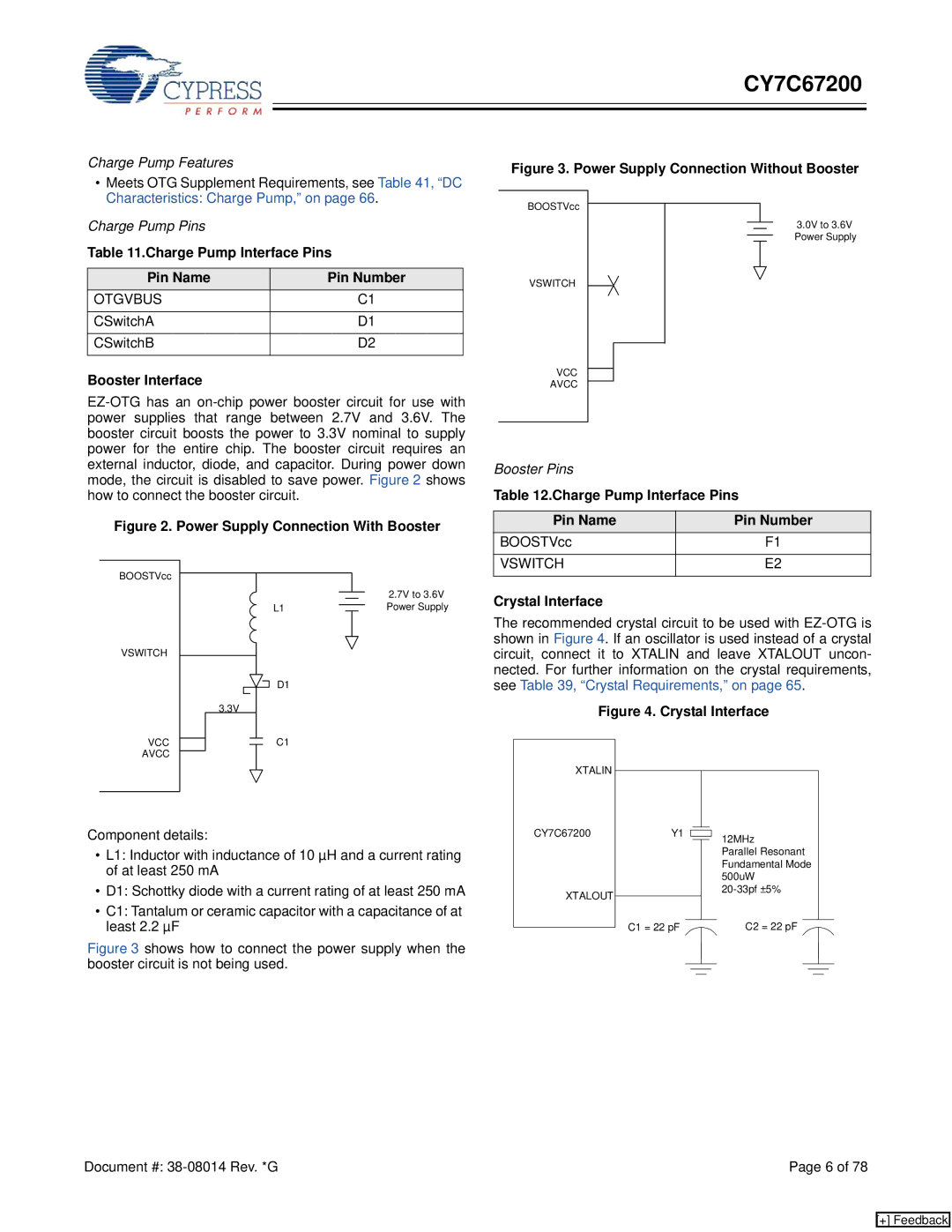
CY7C67200
Charge Pump Features
Figure 3. Power Supply Connection Without Booster
•Meets OTG Supplement Requirements, see Table 41, “DC Characteristics: Charge Pump,” on page 66.
Charge Pump Pins
Table 11.Charge Pump Interface Pins
Pin Name | Pin Number |
OTGVBUS | C1 |
|
|
CSwitchA | D1 |
|
|
CSwitchB | D2 |
|
|
Booster Interface
BOOSTVcc
VSWITCH
VCC
AVCC
Booster Pins
3.0V to 3.6V Power Supply
how to connect the booster circuit.
Figure 2. Power Supply Connection With Booster
Table 12.Charge Pump Interface Pins
Pin Name | Pin Number |
BOOSTVcc | F1 |
|
|
VSWITCH | E2 |
BOOSTVcc
VSWITCH
VCC
AVCC
| 2.7V to 3.6V |
L1 | Power Supply |
D1
3.3V
C1
Crystal Interface
The recommended crystal circuit to be used with
Figure 4. Crystal Interface
XTALIN
Component details:
•L1: Inductor with inductance of 10 µH and a current rating of at least 250 mA
•D1: Schottky diode with a current rating of at least 250 mA
•C1: Tantalum or ceramic capacitor with a capacitance of at least 2.2 µF
Figure 3 shows how to connect the power supply when the booster circuit is not being used.
CY7C67200
XTALOUT
Y1
C1 = 22 pF
12MHz
Parallel Resonant Fundamental Mode 500uW
C2 = 22 pF
Document #: | Page 6 of 78 |
[+] Feedback
